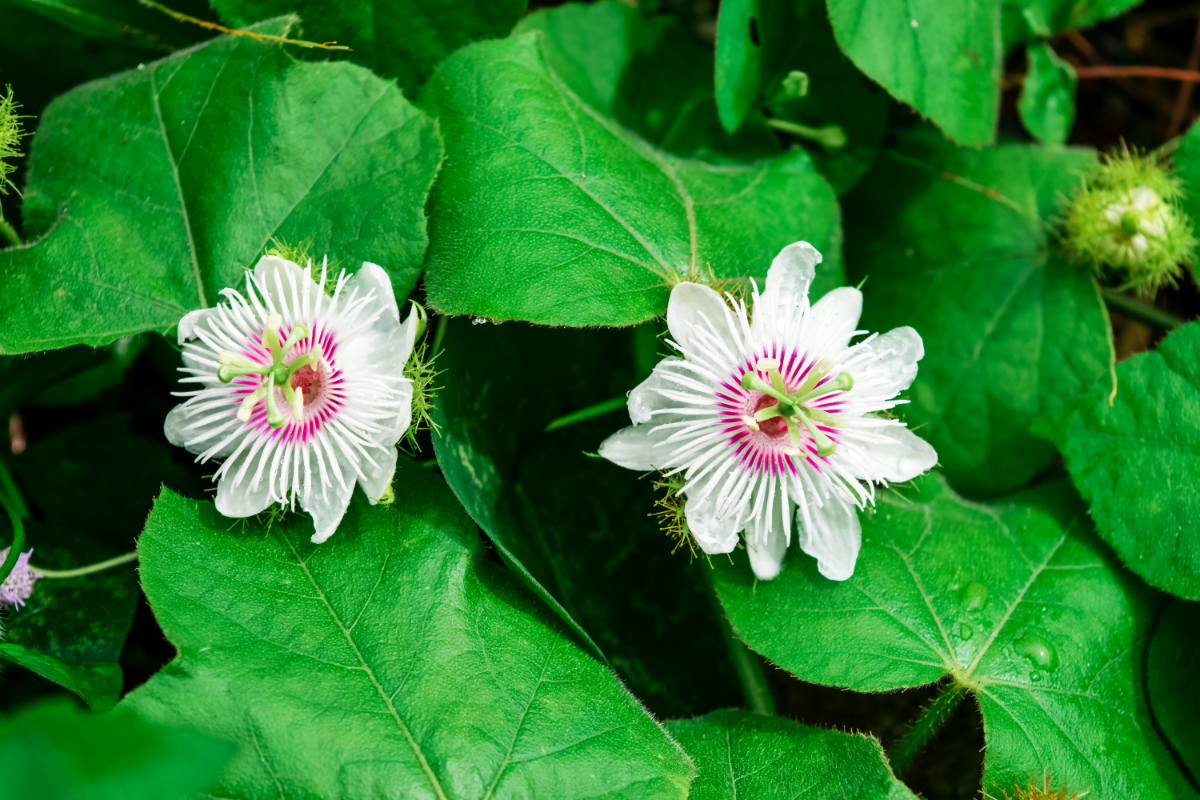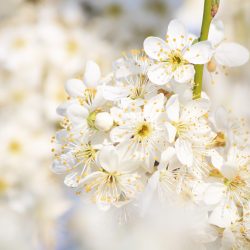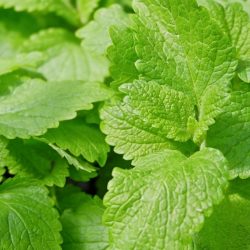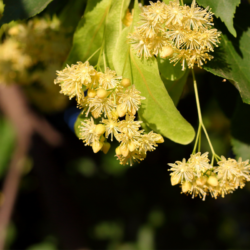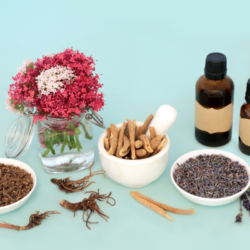Passionflower, or Passiflora incarnata, is a climbing plant native to the south-eastern United States and Mexico, renowned for its medicinal properties. Traditionally used to treat insomnia and anxiety, it has gained an important place in the French pharmacopoeia. Its richness lies in its unique constituents, notably flavonoids and indole alkaloids. This article explores the many facets of passionflower, from its fascinating history to its applications in phytotherapy, its role in traditional medicine and its pharmacological effects. We also look at the precautions for use and recommended doses, as well as the opinions of the health authorities on this plant with its many benefits.
What is passionflower?
Passiflora incarnata, also known as Passiflora officinalis, Liane de grenade or Maypop, is a climbing plant. It belongs to the Passifloraceae family. It originated in the south-eastern United States and Mexico. It is traditionally used to treat insomnia and anxiety. It is even mentioned in the 10th edition of the French Pharmacopoeia.
Passionflower is a perennial plant. It hangs by its tendrils. Its alternate leaves are borne on a pubescent stalk. They have a three-lobed blade and lanceolate elliptical lobes. Passiflora flowers are solitary. They consist of 3 bracts and 5 white oblong sepals. There are also 5 pink or purple petals. A crown of mauve-blue filaments decorates the flower. In the centre is a column, the androgynophore. It has 5 orange stamens and a pubescent ovary.
The fruit of Passiflora incarnata is an oblong-ovoid, greenish-yellow, edible berry. The plant flowers from June to September and is grown worldwide for its ornamental and medicinal properties.
Ingredients :
- Flavonoids: Majority in Passiflora incarnata, including schaftoside, apigenin, vitexin, and others.
- Indole alkaloids: Like harmane, in low concentrations.
- Others: Phenol acids, coumarins, phytosterols, essential oils, cyanogenic heterosides.
Passion flower essential oils include hexanol, benzyl alcohol and others, which contribute to its characteristic odour. It also contains 21 amino acids.
In the French pharmacopoeia, the plant drug passionflower is the species P. incarnata. It is used in phytotherapy in a different way to Passiflora edulis, which produces passion fruit. Traditionally, passionflower has been used as a sedative to combat insomnia, anxiety and palpitations, often in combination with hawthorn. It is also used in baths to relieve nervousness and applied locally to treat haemorrhoids.
A little history
What are the main pharmacological properties of the aerial parts of Passiflora?
Pre-clinical research on animals suggests that passionflower acts at both central and peripheral levels. The methanolic extract of the leaves shows sedative, anxiolytic, anticonvulsant and analgesic properties, attributed to the combined action of flavonoids and β-carboline alkaloids such as harmane and harmine. These effects could be due to an interaction with the GABAergic system. Maltol has also been associated with anticonvulsant and antispasmodic effects. Alkaloids also influence the CNS by inhibiting monoamine oxidase (MAO) and stimulating serotonin production.
Neuropsychological properties
Passiflora incarnata is unique in the Passiflora genus for its ancestral use as an anxiolytic and sedative, but its active substances remain a mystery. Maltol, a central nervous system depressant, is present in low concentrations. Indole alkaloids, which stimulate the nervous system, are cited as one of its components. However, the presence of flavonoids such as chrysin in this species remains uncertain.
Studies have validated the anxiolytic effects of passionflower, particularly in the SIPF galenic form. One promising avenue is that of benzoflavone (BZF), discovered by Dhawan and his team, which could prevent drug dependence. When administered with delta-9-THC, BZF reduces withdrawal symptoms and prevents tolerance to cannabinoids. Research has also shown that BZF prevents the withdrawal effects associated with morphine, nicotine or alcohol, and is an effective anxiolytic without the risk of dependence.
Sedative activity
In 2009, a double-blind, placebo-controlled study revealed that 500 mg of Passiflora incarnata extract, taken 90 minutes before surgery, reduced preoperative stress. This was confirmed by another study in 2012 prior to spinal anaesthesia. This study involved 60 patients aged between 25 and 55. These results were obtained without affecting psychomotor function tests, sedation levels or haemodynamic data.
The plant acts by inhibiting monoamine oxidase and stimulating serotonin production. It also has an agonist effect on GABA (y-aminobutyric acid) receptors. This action on the gabaergic system is partly due to its indole alkaloids (such as harmane) and flavonoids (such as chrysin, homo-orientin, vitexin and isovitexin). These compounds contribute to the plant’s anxiolytic activity, which is similar in vivo to that of diazepam.
Passiflora incarnata extracts generate GABA currents in hippocampal neurons in vitro. They also show anticonvulsant effects in vivo, which vary according to the extraction method. This activity depends on gabaergic receptors for benzodiazepines and opioids.
Cognitive and anxiolytic activity
Passiflora incarnata improves spatial memory in a dose-dependent manner and reduces anxiety. It also influences neurotransmission, reducing glutamic acid levels in the hippocampus and cortical serotonin. It also increases metabolite levels and their renewal, partially confirming the plant’s mechanism of action on GABA receptors.
Another study observed mice in an environment with light and dark areas. With passionflower extract, the mice spent more time in the lighted area, again showing a reduction in anxiety.
In humans, a 2001 study of 32 volunteers compared the effectiveness of passionflower and oxazepam in treating anxiety. The participants were divided into two groups. The first received passionflower extract and a placebo, while the second received placebo and oxazepam. After 4 days, the oxazepam group showed faster improvement, but after 7 days, both groups showed similar improvements. In the long term, there was no significant difference between the two treatments. However, side effects were more marked with oxazepam, particularly in terms of reduced work performance.
These results suggest that passionflower has real therapeutic potential for the treatment of anxiety disorders in humans.
Hypnotic activity
After an increase in the subject’s motility and exploratory activity during the first 3 hours after taking passionflower, a clear slowdown in general activity was observed, with a sedative and then hypnotic component, increasing the duration of sleep and potentiating the effect of sleeping pills. Passionflower also lowers body temperature, a favourable condition for falling asleep. This effect is enhanced by the anticonvulsant and antispasmodic action of maltol, present in small quantities in the plant. In vitro and in vivo, passionflower extract positively modulates circadian rhythms by inducing large amplitude rhythms without phase shifts in the expression of several circadian clock genes.
In 2012, a double-blind, placebo-controlled study was carried out on 41 healthy volunteers aged between 18 and 35. This study used polysomnography to monitor the effects of an aqueous extract of Passiflora incarnata on sleep for 7 days. The results revealed positive correlations between the participants’ subjective perceptions and objective measures of their sleep. These measures included sleep onset and sleep efficiency, compared with placebo.
A 2017 in vivo study revealed that P. incarnata significantly prolongs total sleep time. This increase results from a lengthening of slow wave sleep and a reduction in wakefulness time. On the other hand, time spent in REM sleep tends to be shorter, both in terms of frequency and average duration.
Analgesic and neuroprotective activities
In vivo, other anti-nociceptive and behavioural results (sedation, anxiolysis) obtained with P. incarnata confirm that its activity may derive from underlying opioid and gabaergic mechanisms, and could also involve a potential cannabimimetic-type action. This work shows that the plant could be useful for treating neuropathic pain.
In vivo, in an animal model of sleep disorders, it was confirmed in 2019 that vitexin, the main bioactive component of ethanolic extracts of Passiflora incarnata leaves and fruit, also improves hyppocampal neurogenesis, with evidence of an increase in brain-derived neurotrophic factor (BDNF) in the hippocampus and a significant decrease in Tau protein (a marker of Alzheimer’ s disease) compared with the control group. These benefits were accompanied by an improvement in memory, as measured by the water maze test. There was no change in the animals’ feeding behaviour, body weight, metabolic rate or body composition. These results identify passionflower as a potential therapy for improving memory function and preventing Alzheimer’s disease by acting on the hippocampus.
Psycho-behavioural activity
In 2019, a Swiss qualitative, exploratory and observational study examined for the first time the experiences of patients using an ethanolic extract of Passiflora incarnata. This research revealed three distinct categories of patients’ biographical accounts based on their experience with the plant. In the first type of account, users described a shift in focus. They moved from a life focused on performance to a redefinition of priorities, favouring tranquillity. Patients in the second type retained their performance orientation but integrated a sense of calm. Finally, those of the third type continued to focus on performance and experienced persistent illness.
The trisubstituted benzoflavone (BZF fraction) in passionflower showed significantly encouraging results in reversing tolerance and dependence on several psychotropic drugs predisposing to addiction, including morphine, nicotine, ethanol, diazepam and delta-9-tetrahydrocannabinol.
- Helps benzodiazepine withdrawal: the BSF fraction of passionflower, without generating dependence, reduces benzodiazepine dependence, as demonstrated by in vivo studies.
- Alcohol withdrawal aid: A 2017 in vivo study revealed that alcohol treatment increased nociceptive thresholds after withdrawal. Passiflora incarnata reversed this effect, as measured by the hot plate test. In addition, treatment for alcoholism increased levels of brain-derived neurotrophic factor (BDNF) and interleukin-10 in the prefrontal cortex, which P. incarnata did not reverse. These results indicate that the plant could be a potential treatment for alcohol withdrawal syndrome.
Somatic properties
Passionflower ‘s peripheral activity plays a crucial role in relaxation and the induction of restful sleep. It acts as a muscle antispasmodic, increasing the amplitude of contractions, decreasing their frequency and reducing general tone. Passionflower also potentiates the effects of papaverine and antagonises pilocarpine, reinforcing its relaxing action.
Passion flower has a calming effect on the heart. It promotes an increase in breathing amplitude and frequency. In a four-week placebo-controlled study, administration of passionflower bark extract significantly reduced asthma symptoms. Its beneficial effects on the cardiovascular system include reducing blood pressure and regulating heart rate, helping to prevent cardiovascular disease. Its antioxidant properties also help to protect cells from damage caused by free radicals.
With regard to digestive disorders, passionflower is effective for relieving stomach upsets, cramps and bloating. It relaxes the muscles of the digestive tract, facilitating smoother digestion and reducing associated discomfort.
In terms of immune support, passionflower boosts the immune system, helping to prevent infection and disease. Containing compounds with antimicrobial and anti-inflammatory properties, it fights pathogens and supports the body’s immune response. In this way, passionflower helps to maintain good overall health.
Other properties
Are there any precautions to be taken when using Passionflower?
How should Passionflower be taken and at what dosage?
The recommended doses for taking passionflower orally vary according to the form of consumption. For anxiety, take 1 to 2 g of plant in 150 ml of boiling water, or 0.5 to 2 g of plant powder. This preparation can be taken up to four times a day. If you have trouble sleeping, take passionflower with your evening meal. Treatment should not exceed two weeks without medical advice.
- As a dietary supplement, in the form of standardised fresh plant extract,dry extract, powder or capsules.
- Standardised fresh plant fluid extract: 5 to 10 ml per dose in water.
- Whole suspension of fresh plant: 5 to 10 ml 1 to 3 times a day in water.
- Honey glycerine fluid extract: 5 ml 2 to 3 times a day in water.
- Mother tincture: 20 to 30 drops 1 to 3 times a day in water or herbal tea.
- Infusion: 1 to 2 teaspoons per 150 ml for 10 minutes, 1 cup 1 to 3 times a day.
What do the health authorities think?
The use of passionflower is mainly based on traditional practices, despite limited and sometimes contradictory clinical studies. On animals, it has been observed to lower blood pressure and stimulate breathing. In a study of 36 patients suffering from generalised anxiety, passionflower proved more effective than a benzodiazepine anxiolytic. However, its effect diminished after one week. During heroin withdrawal, the addition of passionflower to the standard treatment helped to reduce psychological symptoms. Physical symptoms remained unaffected.
Concerning the opinions of the health authorities :
- The EMA (European Medicines Agency) considers the use of passionflower to relieve moderate stress and related sleep disorders to be “traditionally established”, and recommends its use for adults and children over the age of twelve.
- The WHO (World Health Organisation) recognises passionflower as an effective mild sedative for nervous agitation, insomnia and anxiety, as well as for anxiety-related gastrointestinal disorders. It also mentions its use for painful menstruation, neuralgia and palpitations of nervous origin.
- Commission E of the German Ministry of Health recognises its use in cases of agitation linked to nervousness.
- ESCOP (European Scientific Co-operation on Phytotherapy) recognises its use in states of agitation, nervousness and irritability with difficulty falling asleep.
- The NIH (US National Institutes of Health) considers the effects of passionflower in states of anxiety, nervousness and restlessness to be “probable”.
Medical literature and clinical trials
- Guerrero F.A. et al. Effect of a medicinal plant (Passiflora in car nata L) on sleep, Sleep science (Sao Paulo, Brazil), 2017
- Canalla C. et al, Patients’ experiences attributed to the use of Passiflora incarnata: A qulitative phenomenological study, J Ethnopharmacol, 2019
- Aslanagun P. et al, Pssiflora incarnata Linneaus as an anxiolytic before spinal anaesthesia, J Anesth, 2012
- Ngan A. et al. A double-blind, placebo-controlled investigation of the effects of Passiflora in car nata (passionflower) herbal tea on subjective sleep quality; Phytother Res., 2011

